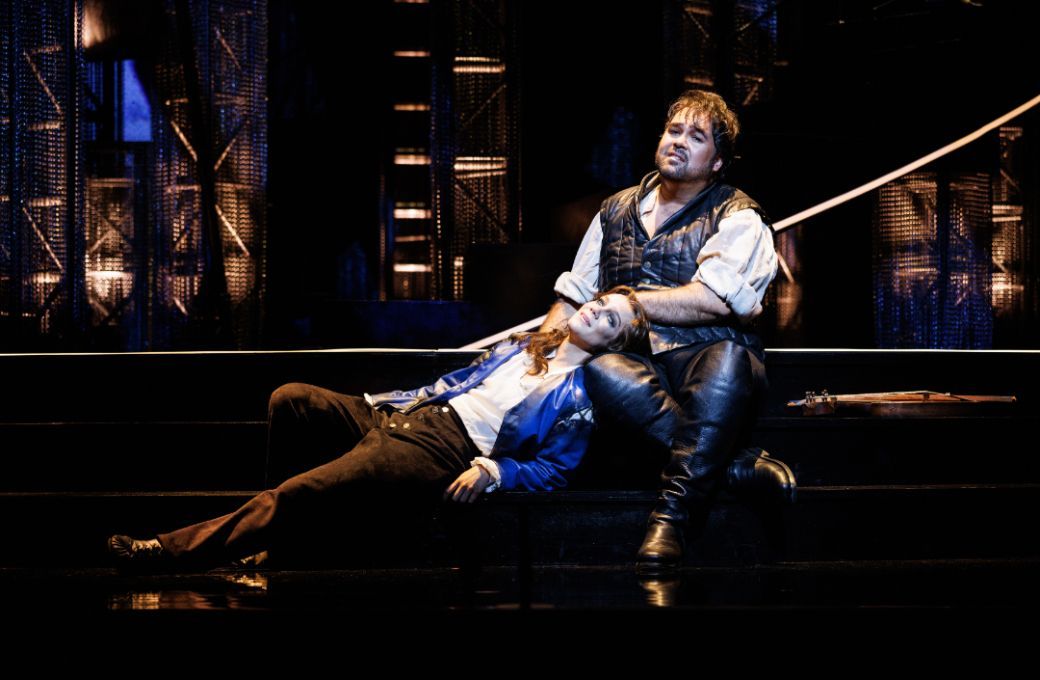Bedřich Smetana’s comic opera The Bartered Bride is a relatively solid first choice among his eight finished operas, but Dalibor (1868) was the composer’s favorite and is the most revered in his homeland. Like most Czech operas, this one has a strong vein of patriotism or nationalism about it, but its “flavor” is something else. The 15th-century knight, Dalibor, opposed to the still prevalent Habsburg rule, has led an uprising and killed the local military governor. In addition to Dalibor’s anti-feudal stance, the governor had killed Dalibor’s dearest friend, a sensitive young violinist named Zdeněk and Dalibor avenges him.

The opening scene is at his trial (there is no overture or prelude) where Milada, the sister of the dead governor, demands Dalibor's execution as the crowd objects; but when he tells of Zdeněk’s capture and murder, he is sentenced to life imprisonment instead. Dalibor’s sincerity melts Milada’s heart though and as she falls in love with him, a young orphan, Jitka, joins her in resolving to free him. She wheedles her way into the jail by disguising herself as a boy and working. Sounds like Fidelio? Well, it is, except unlike Leonore in Beethoven’s opera, she fails and they both die.
Part patriotic tale, part love story, part failed “rescue opera”, Smetena gives us soaring music, a drinking chorus, monologues or arias with melodies and fine moments of dramatic exclamation. Accused of sounding too Wagnerian (or Lisztian), our more sophisticated ears now tell us it is pure Czech. It also has a gorgeous, stirring love duet and some fine violin solos, the latter representing the bond between the dead Zdeněk (here presented at Bard College as a wandering ghost) under the sensitive direction of French director Jean-Romain Vesperini, with video projections by Etienne Guiol, which are moody and handsome. The more-or-less unit set, by Bruno de Lavanère, consists of a floor-to-ceiling silver and neon spiral staircase, with curtain-like, silver beads. One step away from both realism and fantasy, and very effective.
Singers with the roles in their repertoire are few and far between, and when the tenor and soprano slated to sing Dalibor and Milada had to drop out due to visa issues, Bard was lucky to find John Matthew Myers and Cadie J Bryan, who were both remarkable. Dalibor is a trying Heldentenor role, and Myers conquered it with unflagging power, grace and nuance. Dalibor’s music goes from defiance to pleading to a Song to Freedom (in Act 3) and a ravishing love duet with plenty of exposed high notes. The same needs to be said about Bryan, whose radiant tone and nuanced singing almost condemned Dalibor early on, but whose noble love for him later was totally convincing.
Alfred Walker as the King ruled with his first and third act declarations, his authority never in doubt. The jailer, Beneš, was well sung by Wei Wu, albeit with little character (Rocco, in Fidelio is more earthy) and Jitka, the orphan girl, was a fine portrait by Erica Petrocelli. Vítek, a compatriot of Dalibor’s, was sung with a light-hearted tenor by Terrence Chin-Loy.
As usual, the performance rode on Leon Botstein’s expertise. He offers a rarity like Dalibor a couple of times each summer, and even if the performances were less fine, they’d still be unexpected treasures. The American Symphony Orchestra played with great expertise. The audience greeted this little-known work as an old friend.


